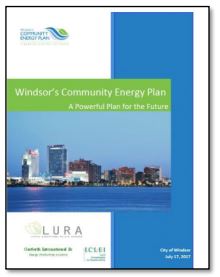
Climate Inertia: The Need for Immediate Action and Long-term Planning
One of the major challenges to climate change adaptation planning is the time delay between the release of greenhouse gas emissions and the resulting climate change impacts. When greenhouse gases are emitted into the atmosphere they can remain in the environment for decades before they impact our climate and often this impact does not occur in the same location as the emissions. This phenomenon is commonly referred to as “Climate Inertia” and it is an extremely important area of climate science currently being studied (Hansen et al. 2013). Research into this area is ongoing and there is no unanimous consensus on exactly the time delay, but current literature suggests a delay of 20 to 40 years (Tebaldi & Friedlingstein 2013). What this means for governments, municipalities, businesses and citizens looking to combat climate change is that we cannot expect to see the benefits of mitigation efforts immediately. A reduction in emissions in a certain location will not result in decreased climate impacts the following year, or even the following decade.
Based on the climate inertia delay of 40 years, Windsor is currently experiencing climate impacts from greenhouse gasses emitted in the late 1970s and early 1980s (Boden et al. 2009). On all local, provincial, national, and international scales emissions have drastically increased between the 1970s and present day, in fact, total global emissions have doubled since 1980. This means that we are only beginning to see the full affects of climate change and we can expect it to worsen and intensify drastically for at least the next 40 years, even if emissions were reduced to zero today. Climate change mitigation efforts undertaken now are working to reduce climate impacts for 2060. This is why climate change mitigation and adaptation planning are so important and must be done in partnership.

The Objectives and action items developed in Degrees of Change refer to Climate Change Adaptation. Work continues to mitigate climate change by reducing the greenhouse gas (GHG) emissions in the City of
Windsor through the implementation of the Community Energy Plan. This Plan involves Community-level work and is lead by City of Windsor Administration as well as the Community Energy Plan Community Task Force.